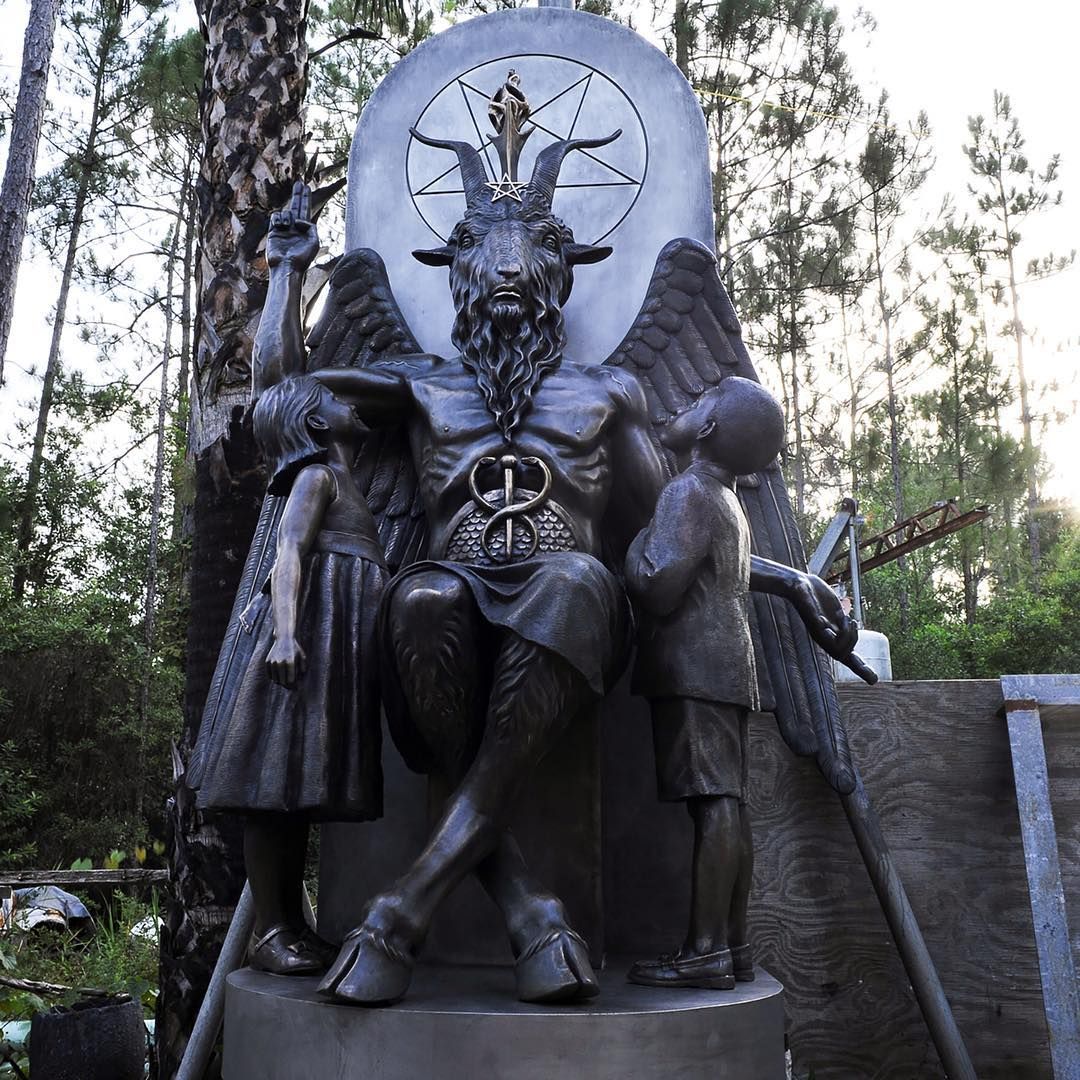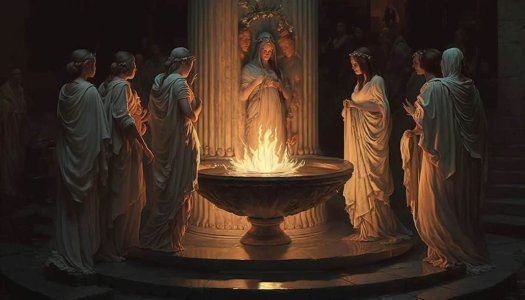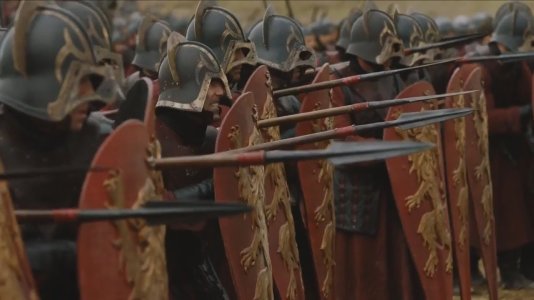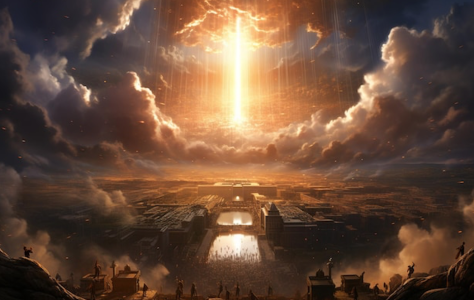- Mar 5, 2024
- 2,117
- 1,095
Mastering Endurance, Like An Athlete Training For Glory, Part 2

To recap, the Christians James was writing to would soon be suffering persecution at the hands of the Jewish authorities, and already they were having to deal with all sorts of trials and sufferings: Financial exploitation, judicial oppression, and the belittlement that came with being considered as spiritual "inferiors" within Jewish society. This religious favoritism was ingrained in Jewish culture, so deeply in fact that it was now manifesting in the churches as well. Some Christian congregations were following suit, and treating the poorest among them like spiritual inferiors who needed to sit in the lowest places of honor in the room:
My brothers, do not uphold the faith of our Lord Jesus Christ, the Lord of glory, while practicing respect of persons. For if there comes into your synagogue a man wearing gold rings and fine apparel, but there may have also come in a poor man in dirty apparel, and you looked upon the one wearing the fine apparel and said to him, "You sit here comfortably," yet to the poor man you said, "You stand there," or "Sit under my footstool," have you not made distinctions amongst yourselves and become judges engaging in evil estimations? (James 2:1-4)
To make matters worse, the rich were cheating the poor out of their wages to keep them in a state of impoverishment, all while continuing to be excused for such behavior and honored as the most "righteous" in society. This, too, was something James was exposing as a lie and warning the rich about, pulling no punches in letting them know they were actually heading not for rear but for judgment if they continued on with such behavior:
Go weep now, rich men, howling over the miseries coming upon you... Behold, the wage of the workmen who harvested your fields is crying out, having been kept back by you, and the cries of those who have reaped have entered into the ears of the Lord of Hosts. You lived in luxury and self-indulgence on the earth. You fattened your hearts in a day of slaughter. You condemned, you murdered the just, who does not oppose you. (James 5:1, 4-6)
Through the letter, James spent time inverting these assumptions about who was "righteous" and who was not by teaching the exact opposite; that it was actually the ones who endured the greatest trials in life who would be the most blessed in eternity, for they would receive "the crown of life, which the Lord promised to those who loved Him." (v.12) By this, James was using the analogy of the marathon runner, and driving home the following point: In the spiritual life, the enemy uses many things to discourage the faithful, so we must build up endurance so that the sins and injustices we are being subjected to do not cause us to become discouraged, lash out in retaliation, or possibly even depart from the faith together. Rather, we should continue to minister to others in a Spirit of love and meekness, hoping for their salvation, yet we will never do so unless we have mastered endurance. So James was encouraging them to "count it all joy" when we happened upon various trials and sufferings, knowing that the more they grew accustomed to handling injustices gracefully, the more they would walk in perfect obedience to God, and be awarded greater honor and glory in eternity for it.
Like Olympians, They Had To Finish Their Race
The ancient Olympic events were tests of endurance. The Greeks invented the Pentathlon, which was a combination of discus, javelin, jumping, running, and wrestling. The boxing events had fewer rules than today. There were no such thing as rounds, so boxers just kept wailing at each other until one of them was knocked out or admitted defeat, and there was no rule against hitting your opponent when he was down either. Possibly the most grueling event was the Pankration, which consisted of both boxing and wrestling. The hands were not wrapped with leather so it was bare-fisted, and the only limitations on the physical brutality were rules against biting, or gouging your opponent’s eyes, nose, or mouth with your fingers. There was also the Warriors Race, which was 2 to 4 stades long (roughly 600 yards) and had to be run in full armor. Standard armor of that time weighed around 50-60 pounds, including the helmet and shield, so running that distance fully equipped got exhausting in a hurry. The Olympic Marathon, then, was just more of the same. It was primarily a test of endurance, though the Marathon in particular would go on to become the most famous of the Olympian events, and has survived till this day.
Because they were tests of endurance, the Greek games were called "the Agon," from which we get our English word "agony" today, and it's no coincidence that the apostle Paul used this term several times in his letters. His encouragement to Timothy to "fight the good fight of faith" was one such instance. If translated strictly, the Greek there was actually saying "agonize the good agonizing of faith," or in other words, "Give it absolutely everything you have." Athletes today use a similar expression when they say "I left it all in the field."
Thus, the New Testament writers understood the spiritual life to be a test of endurance, and a marathon not a sprint. So anyone who desired glory in eternity would have to embrace the agonies involved. And they would have to prepare to endure until the end, for even Jesus Himself said this when He warned them about what would be coming, telling them:
They will deliver you to Sanhedrins, and scourge you in their synagogues… brother will deliver up brother to death, and the father the child, and children will rise up against their parents and put them to death. And you will be hated by everyone on account of My name, but the one who endures until the end, this one shall be saved. (Matthew 10:17, 21-22)
The apostle Paul's life was a prime example of this. At one point he listed the sufferings he was enduring for the sake of the gospel, and yet none of it stopped him from fulfilling the calling on his life, or running his race until the end:
Five times I received from the Jews the forty lashes minus one. Three times I was beaten with rods, once I was stoned... I have been in danger from rivers, in danger from bandits, in danger from my fellow Jews, in danger from Gentiles, in danger in the city, in danger in the country, in danger at sea, and in danger from false believers, [and all this] amid labor and toil, often amid sleeplessness, amid hunger and thirst, amid fastings often, amid cold and nakedness. (2 Corinthians 11:24-27)
While some believe Paul was not the author of Hebrews, I believe he was, and in this letter he went on to describe what he believed was the secret: Looking unto Jesus, who had already run His own race, and had now ascended to Heaven and sat down at the right and of the Father, having inherited glory and honor forever. The "cloud of witnesses" Paul described as viewing us running our own race were the faithful in Heaven, who were now like spectators in an ancient stadium, and watching to see just how much we gave it our all for the Lord while it was still our chances to shine in this life.
Therefore we also, since we are surrounded by so great a cloud of witnesses, let us lay aside every weight, and the sin which so easily ensnares us, and let us run with endurance the race that is set before us, 2 looking unto Jesus, the author and perfecter of our faith, who for the joy that was set before Him endured the cross, despising the shame, and has sat down at the right hand of the throne of God. 3 For consider Him who endured such hostility from sinners against Himself, lest you grow weary and faint in your souls. (Hebrews 12:1-3)
This is why he told Timothy near the end of his life that he had finish the race, and because he had endured until the end, great reward was now awaiting him in eternity:
I have fought the good fight, I have finished the race, I have kept the faith. Henceforth there is laid up for me a crown of righteousness, which the Lord, the righteous Judge, will award me in that Day. (2 Timothy 4:7-8a)
Continued next post...

To recap, the Christians James was writing to would soon be suffering persecution at the hands of the Jewish authorities, and already they were having to deal with all sorts of trials and sufferings: Financial exploitation, judicial oppression, and the belittlement that came with being considered as spiritual "inferiors" within Jewish society. This religious favoritism was ingrained in Jewish culture, so deeply in fact that it was now manifesting in the churches as well. Some Christian congregations were following suit, and treating the poorest among them like spiritual inferiors who needed to sit in the lowest places of honor in the room:
My brothers, do not uphold the faith of our Lord Jesus Christ, the Lord of glory, while practicing respect of persons. For if there comes into your synagogue a man wearing gold rings and fine apparel, but there may have also come in a poor man in dirty apparel, and you looked upon the one wearing the fine apparel and said to him, "You sit here comfortably," yet to the poor man you said, "You stand there," or "Sit under my footstool," have you not made distinctions amongst yourselves and become judges engaging in evil estimations? (James 2:1-4)
To make matters worse, the rich were cheating the poor out of their wages to keep them in a state of impoverishment, all while continuing to be excused for such behavior and honored as the most "righteous" in society. This, too, was something James was exposing as a lie and warning the rich about, pulling no punches in letting them know they were actually heading not for rear but for judgment if they continued on with such behavior:
Go weep now, rich men, howling over the miseries coming upon you... Behold, the wage of the workmen who harvested your fields is crying out, having been kept back by you, and the cries of those who have reaped have entered into the ears of the Lord of Hosts. You lived in luxury and self-indulgence on the earth. You fattened your hearts in a day of slaughter. You condemned, you murdered the just, who does not oppose you. (James 5:1, 4-6)
Through the letter, James spent time inverting these assumptions about who was "righteous" and who was not by teaching the exact opposite; that it was actually the ones who endured the greatest trials in life who would be the most blessed in eternity, for they would receive "the crown of life, which the Lord promised to those who loved Him." (v.12) By this, James was using the analogy of the marathon runner, and driving home the following point: In the spiritual life, the enemy uses many things to discourage the faithful, so we must build up endurance so that the sins and injustices we are being subjected to do not cause us to become discouraged, lash out in retaliation, or possibly even depart from the faith together. Rather, we should continue to minister to others in a Spirit of love and meekness, hoping for their salvation, yet we will never do so unless we have mastered endurance. So James was encouraging them to "count it all joy" when we happened upon various trials and sufferings, knowing that the more they grew accustomed to handling injustices gracefully, the more they would walk in perfect obedience to God, and be awarded greater honor and glory in eternity for it.
Like Olympians, They Had To Finish Their Race
The ancient Olympic events were tests of endurance. The Greeks invented the Pentathlon, which was a combination of discus, javelin, jumping, running, and wrestling. The boxing events had fewer rules than today. There were no such thing as rounds, so boxers just kept wailing at each other until one of them was knocked out or admitted defeat, and there was no rule against hitting your opponent when he was down either. Possibly the most grueling event was the Pankration, which consisted of both boxing and wrestling. The hands were not wrapped with leather so it was bare-fisted, and the only limitations on the physical brutality were rules against biting, or gouging your opponent’s eyes, nose, or mouth with your fingers. There was also the Warriors Race, which was 2 to 4 stades long (roughly 600 yards) and had to be run in full armor. Standard armor of that time weighed around 50-60 pounds, including the helmet and shield, so running that distance fully equipped got exhausting in a hurry. The Olympic Marathon, then, was just more of the same. It was primarily a test of endurance, though the Marathon in particular would go on to become the most famous of the Olympian events, and has survived till this day.
Because they were tests of endurance, the Greek games were called "the Agon," from which we get our English word "agony" today, and it's no coincidence that the apostle Paul used this term several times in his letters. His encouragement to Timothy to "fight the good fight of faith" was one such instance. If translated strictly, the Greek there was actually saying "agonize the good agonizing of faith," or in other words, "Give it absolutely everything you have." Athletes today use a similar expression when they say "I left it all in the field."
Thus, the New Testament writers understood the spiritual life to be a test of endurance, and a marathon not a sprint. So anyone who desired glory in eternity would have to embrace the agonies involved. And they would have to prepare to endure until the end, for even Jesus Himself said this when He warned them about what would be coming, telling them:
They will deliver you to Sanhedrins, and scourge you in their synagogues… brother will deliver up brother to death, and the father the child, and children will rise up against their parents and put them to death. And you will be hated by everyone on account of My name, but the one who endures until the end, this one shall be saved. (Matthew 10:17, 21-22)
The apostle Paul's life was a prime example of this. At one point he listed the sufferings he was enduring for the sake of the gospel, and yet none of it stopped him from fulfilling the calling on his life, or running his race until the end:
Five times I received from the Jews the forty lashes minus one. Three times I was beaten with rods, once I was stoned... I have been in danger from rivers, in danger from bandits, in danger from my fellow Jews, in danger from Gentiles, in danger in the city, in danger in the country, in danger at sea, and in danger from false believers, [and all this] amid labor and toil, often amid sleeplessness, amid hunger and thirst, amid fastings often, amid cold and nakedness. (2 Corinthians 11:24-27)
While some believe Paul was not the author of Hebrews, I believe he was, and in this letter he went on to describe what he believed was the secret: Looking unto Jesus, who had already run His own race, and had now ascended to Heaven and sat down at the right and of the Father, having inherited glory and honor forever. The "cloud of witnesses" Paul described as viewing us running our own race were the faithful in Heaven, who were now like spectators in an ancient stadium, and watching to see just how much we gave it our all for the Lord while it was still our chances to shine in this life.
Therefore we also, since we are surrounded by so great a cloud of witnesses, let us lay aside every weight, and the sin which so easily ensnares us, and let us run with endurance the race that is set before us, 2 looking unto Jesus, the author and perfecter of our faith, who for the joy that was set before Him endured the cross, despising the shame, and has sat down at the right hand of the throne of God. 3 For consider Him who endured such hostility from sinners against Himself, lest you grow weary and faint in your souls. (Hebrews 12:1-3)
This is why he told Timothy near the end of his life that he had finish the race, and because he had endured until the end, great reward was now awaiting him in eternity:
I have fought the good fight, I have finished the race, I have kept the faith. Henceforth there is laid up for me a crown of righteousness, which the Lord, the righteous Judge, will award me in that Day. (2 Timothy 4:7-8a)
Continued next post...









